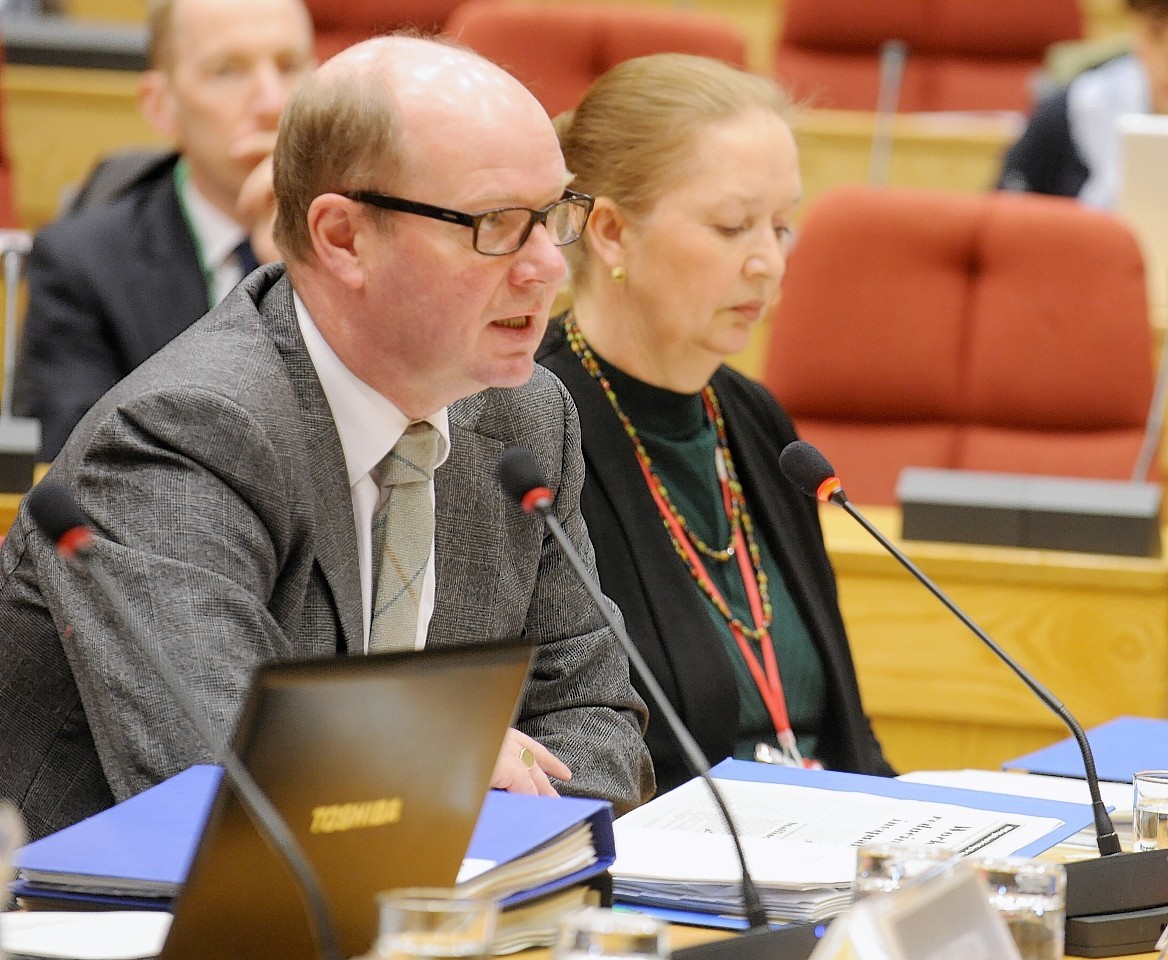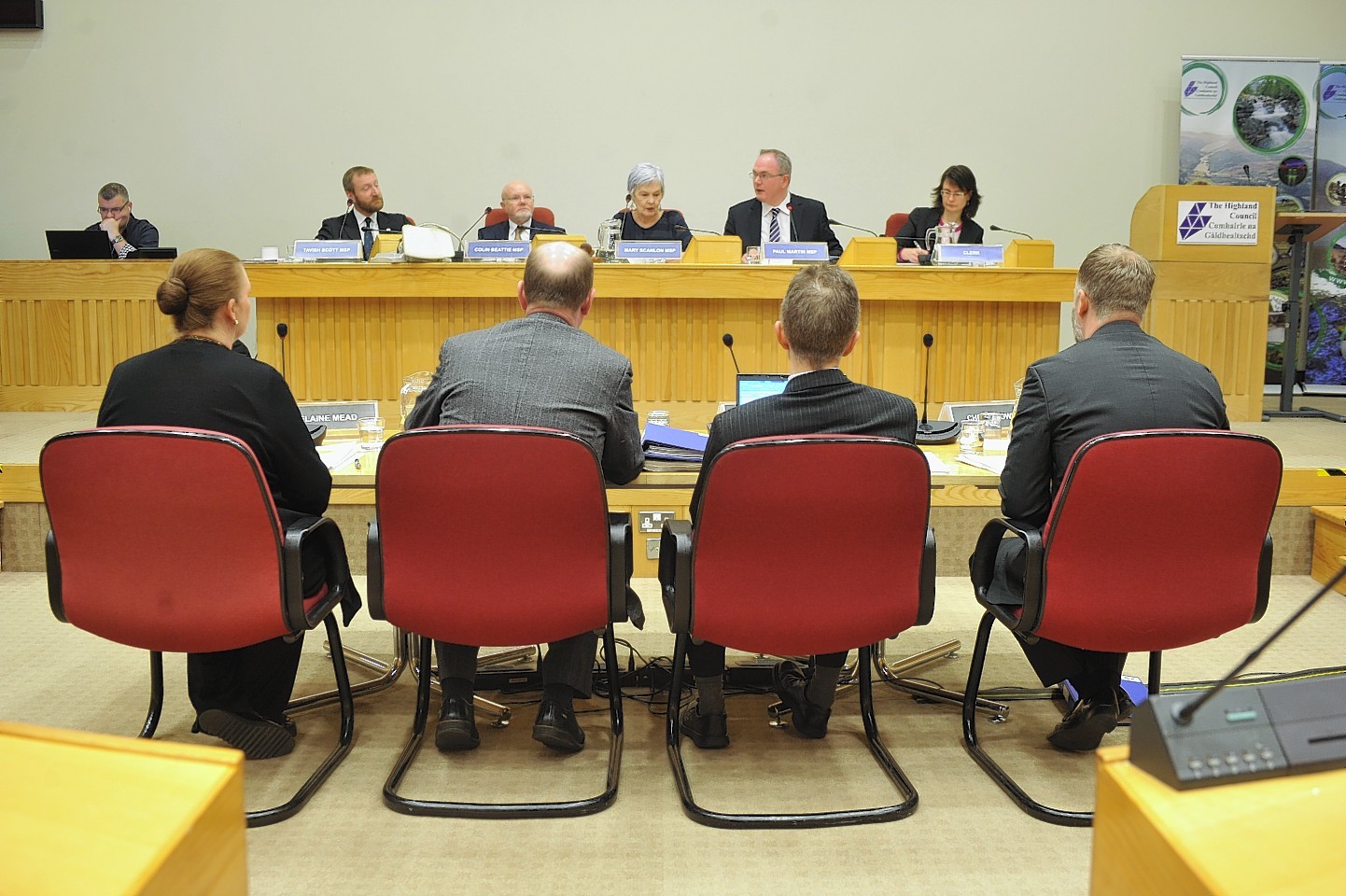Health chiefs in the north have admitted that only a Scottish Government bailout saved them from having to cancel operations and cut services.
Senior managers at NHS Highland had no proper “Plan B” in place to cope with a cash crisis if ministers had not come to the rescue.
They were grilled by members of Holyrood’s powerful public audit committee yesterday following a watchdog’s scathing report on the management of the health board’s finances.
And after what was an often tense session at Highland Council’s HQ, the NHS executives faced allegations they had tried to avoid questions and gave “fudgy” answers.
Health board chairman Garry Coutts, chief executive Elaine Mead, finance director Nick Kenton and internal auditor Chris Brown appeared before the committee yesterday morning.
The board was forced to ask for a £2.5million loan from the Scottish Government last year when it emerged it could not balance its £750million budget.
During yesterday’s interrogation by MSPs managers denied claims that board members were kept in the dark about the need for the loan.
They also insisted that financial management and services were now improving.
But public audit committee vice-convener Mary Scanlon said afterwards she was not confident that enough work had been done to ensure NHS Highland would “turn the corner”.
The Conservative MSP said there were still concerns over home care and delayed discharge from hospital.
She added: “I think their answers were long-winded and were fudgy.
“They skirted around the questions and I think many answers were what they wanted us to hear rather than answering the questions.”
A report on the session will be presented to the Scottish Government in the spring, and it is expected to include a number of recommendations for improvements at NHS Highland.
Committee convener Paul Martin said: “There will be no stone left unturned to ensure this is taken forward.
“There needs to be humility shown and lessons have to be learned from this.”
In an opening statement, Mr Coutts said that seeking brokerage (the government bail-out) was “an exception” which had never happened before in his 11 years as chairman.
The amount sought represented 0.3% of the board’s total budget.
Mr Coutts said he had “100% confidence in the integrity of officials” and added: “They could no more keep us in the dark than fly in the air.
“We are not complacent about the situation we find ourselves in.”
Mr Brown told the committee that Raigmore Hospital in Inverness was one of the major factors in a predicted overspend, adding that there was no “strong culture of tight financial management”.
Ms Mead said she had “done her best” to keep the board informed about the financial situation.
But she said that the issue of seeking brokerage was raised initially with the board in an “informal setting”.
Board finance director Nick Kenton said very little during the entire session.
It emerged that no detailed report was drawn up about the possible consequences if the government refused to grant the loan.
Ms Mead admitted to Mr Martin that services, including operations, would have had to be reduced in the final month of the financial year to ensure the budget was balanced.
Additional initiatives to cut waiting lists and the use of agency staff would also have stopped.
Ms Mead and Mr Coutts said that no board member contacted them to question the need for brokerage or the implications if it was not forthcoming.

